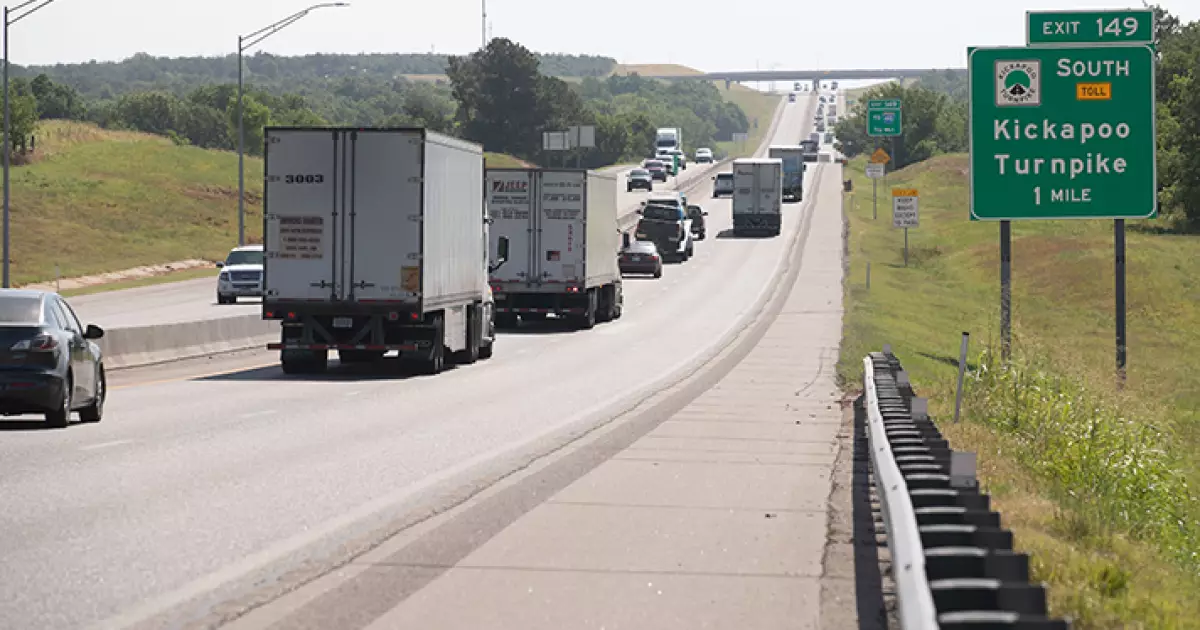Oklahoma Turnpike Authority’s Ambitious Bond Sale: Navigating Controversy and Financial Strategies

The Oklahoma Turnpike Authority (OTA) is poised to make a significant return to the municipal bond market as it announces plans for a substantial $1.3 billion financing endeavor slated for late January. This ambitious initiative not only aims to fund a contentious roadway expansion project but also seeks to refund existing debts. The bond structure includes approximately $1.087 billion in tax-exempt senior revenue bonds alongside $223.3 million in refunding bonds, with financial giant Goldman Sachs acting as the lead bookrunner. The OTA’s recent announcement, shared via the Municipal Securities Rulemaking Board, reveals the intent to finalize pricing based on market conditions, highlighting the importance of timing in municipal financing.
The multi-faceted financing is aligned with the 15-year ACCESS Oklahoma initiative, which Governor Kevin Stitt instituted to enhance the state’s toll road infrastructure. This program, originally expected to incur costs of around $5 billion, has regrettably escalated to a projected total of $8.2 billion. The revisions in cost underscore the financial challenges inherent in large-scale transportation projects, prompting OTA’s board to ratify a toll increase to facilitate funding. This decision, however, has ignited debates among state lawmakers advocating for tighter legislative scrutiny over toll hikes, accentuating the complex intersection of public policy and infrastructure financing.
Investors are likely to closely monitor the forthcoming offering, following the pivotal sale of $500 million in bonds for the ACCESS Oklahoma program late last year. These bonds received favorable ratings from leading agencies; Moody’s assigned an Aa3 rating, while S&P Global Ratings and Fitch Ratings designated an AA-minus rating, all reflecting a stable outlook. Such ratings bolster investor confidence but do not eliminate the risks associated with ongoing litigation and public dissent. Legal challenges, particularly from property owners impacted by the expansion, had previously delayed the bond issuance process. The resolution of these issues by the Oklahoma Supreme Court heralds a more stable environment for this upcoming deal.
However, the OTA faces mounting pressure from advocacy groups like Oklahomans for Responsible Transportation, who are urging for more rigorous oversight concerning ABI’s financing decisions. They have called for an independent feasibility study and comprehensive compliance review, arguing that these measures are essential before proceeding with additional bond sales. This demand reflects a growing public sentiment for accountability in government-related financial dealings, especially with significant taxpayer implications at stake. Importantly, the outcome of an ongoing audit, mandated by Oklahoma Attorney General Gentner Drummond, looms over the OTA’s future bond activities, possibly influencing investor perceptions and public trust.
In sum, while the upcoming bond sale represents a necessary step forward for Oklahoma’s infrastructural ambitions, it is accompanied by a backdrop of skepticism and demand for greater fiscal accountability. As OTA embarks on this financial endeavor, the delicate balance between advancing public infrastructure and addressing community concerns will be critical to ensure long-term viability and acceptance of such projects. The potential success of this bond initiative may very well set the tone for future infrastructure financing discussions throughout the state.





